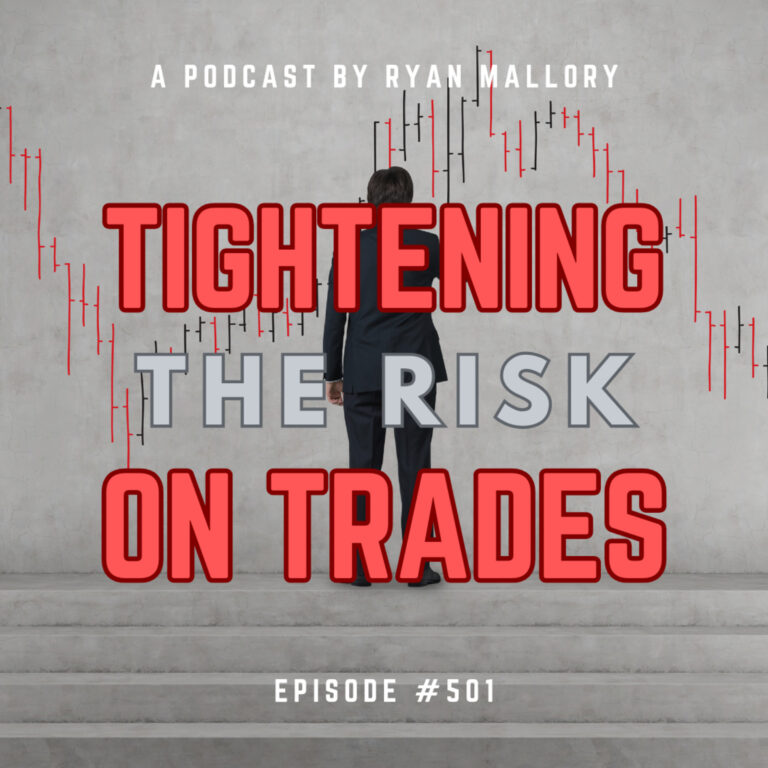1. Buying out of the money options because they are cheap – Out of the money options look tempting to buy because they cost a lot less than in the money options. However a quick look at the deltas of the options will tell you that your probability of them expiring in the money is around 10-30%. A move from out of the money to in the money on options usually results in a nice profit but unfortunately the probabilities are slim.
2. Getting overleveraged – Most people like options and prefer them over stock because they cost less to control more. You can spend only a few hundred instead of a few thousand for the position. The problem here is that people get positions that they are not use to and it overleverages them. If you are used to only buying 400 shares of a stock then you should only buy 4 contracts (4 x 100 = 400). This will allow you to manage the position like normal and not expose you to more risk than you are normally used to.
3. Not having a plan – Options can move very quickly for or against you and not having a plan will only leave you lost as to what to do when that happens. Like trading stock options need a plan of what to do when you have a profit or a loss. Several scenarios and strategies should be laid out and thought through before the trade is made. Trying to decide what to do after the profit or loss has been made will only invite emotion into you analysis.
4. Trading options without fully understanding them – Options are complex vehicles that need a full understanding. There are various strategies, expiration periods, and strikes that can be chosen from. Unfortunately they are not as simple as buy and sell of regular stock. At very minimum everyone should have an understanding of the different strategies available. They should also be familiar with the various greeks and how they affect a position. Greeks like volatility and gamma usually go unnoticed to the beginner but they require the most attention. Also an understanding of the different exit strategies available to each position. With options there are usually several choices of exiting beyond just closing out the position.
5. Limiting yourself to simple long call and long put strategies – Most traders will gravitate to just buying long calls or long puts because they are the simplest to understand and execute. Unfortunately they are not always the easiest to make money with, and rarely are they the best strategy to make money. With long calls/puts the trader needs to be at least right about direction and time. That is the underlying needs to move in the right direction and it does it racing against time. Even options that move in the correct direction but do it slowly can have a negative effect on the profit. Learn all the different strategies to know which one is best for which occasion. Not all strategies are created equal, so use the one that fits the situation.
6. Letting short options go unmonitored – The positive about short options is that you can raise the probability of finishing with a profit. The negative about short options is that it usually leaves you open to lots of risk. In the case of a short call, the risk is virtually unlimited and can damage an account if left unmonitored. When shorting options you must be ready at all times to buy it back and take the loss. The philosophy of “it will come back” doesn’t work here as it will never come back.
7. Not being informed – Before you get into an option strategy make sure you know what is happening with the underlying. Be aware of earnings, dividends, court cases, FDA meetings, etc… that could be happening while you are holding the options. Typically the options will warn you when something is about to happen, so if you see something that doesn’t add up figure out why.
8. Trading illiquid or low volume options – Many stocks have options however not all stocks have options that are regularly traded. Low dollar stocks options are usually not traded heavily since people can buy the underlying for so cheap. Try to avoid options will a low open interest or a low volume on the strikes. Avoiding these will make it easier to trade. Getting in illiquid options is a lot easier than trying to close them or get out. Don’t get trapped in something you can’t get out. Also watch the spread between the bid and the ask. An option with a large spread means you will be starting with a bigger loss. If the spread is 20cents or 30cents that means you already begin $20 to $30 down.

Welcome to Swing Trading the Stock Market Podcast!
I want you to become a better trader, and you know what? You absolutely can!
Commit these three rules to memory and to your trading:
#1: Manage the RISK ALWAYS!
#2: Keep the Losses Small
#3: Do #1 & #2 and the profits will take care of themselves.
That’s right, successful swing-trading is about managing the risk, and with Swing Trading the Stock Market podcast, I encourage you to email me (ryan@shareplanner.com) your questions, and there’s a good chance I’ll make a future podcast out of your stock market related question.
In today's episode, I talk about tightening the risk on the trades and the benefits of taking a multi-pronged approach in doing so between profit taking and raising the stops. Also, I cover how how aggressive one should be in adding new swing trading positions and how many open positions that one should have at any given time.
Be sure to check out my Swing-Trading offering through SharePlanner that goes hand-in-hand with my podcast, offering all of the research, charts and technical analysis on the stock market and individual stocks, not to mention my personal watch-lists, reviews and regular updates on the most popular stocks, including the all-important big tech stocks. Check it out now at: https://www.shareplanner.com/premium-plans
📈 START SWING-TRADING WITH ME! 📈
Click here to subscribe: https://shareplanner.com/tradingblock
— — — — — — — — —
💻 STOCK MARKET TRAINING COURSES 💻
Click here for all of my training courses: https://www.shareplanner.com/trading-academy
– The A-Z of the Self-Made Trader –https://www.shareplanner.com/the-a-z-of-the-self-made-trader
– The Winning Watch-List — https://www.shareplanner.com/winning-watchlist
– Patterns to Profits — https://www.shareplanner.com/patterns-to-profits
– Get 1-on-1 Coaching — https://www.shareplanner.com/coaching
— — — — — — — — —
❤️ SUBSCRIBE TO MY YOUTUBE CHANNEL 📺
Click here to subscribe: https://www.youtube.com/shareplanner?sub_confirmation=1
🎧 LISTEN TO MY PODCAST 🎵
Click here to listen to my podcast: https://open.spotify.com/show/5Nn7MhTB9HJSyQ0C6bMKXI
— — — — — — — — —
💰 FREE RESOURCES 💰
— — — — — — — — —
🛠 TOOLS OF THE TRADE 🛠
Software I use (TC2000): https://bit.ly/2HBdnBm
— — — — — — — — —
📱 FOLLOW SHAREPLANNER ON SOCIAL MEDIA 📱
*Disclaimer: Ryan Mallory is not a financial adviser and this podcast is for entertainment purposes only. Consult your financial adviser before making any decisions.




